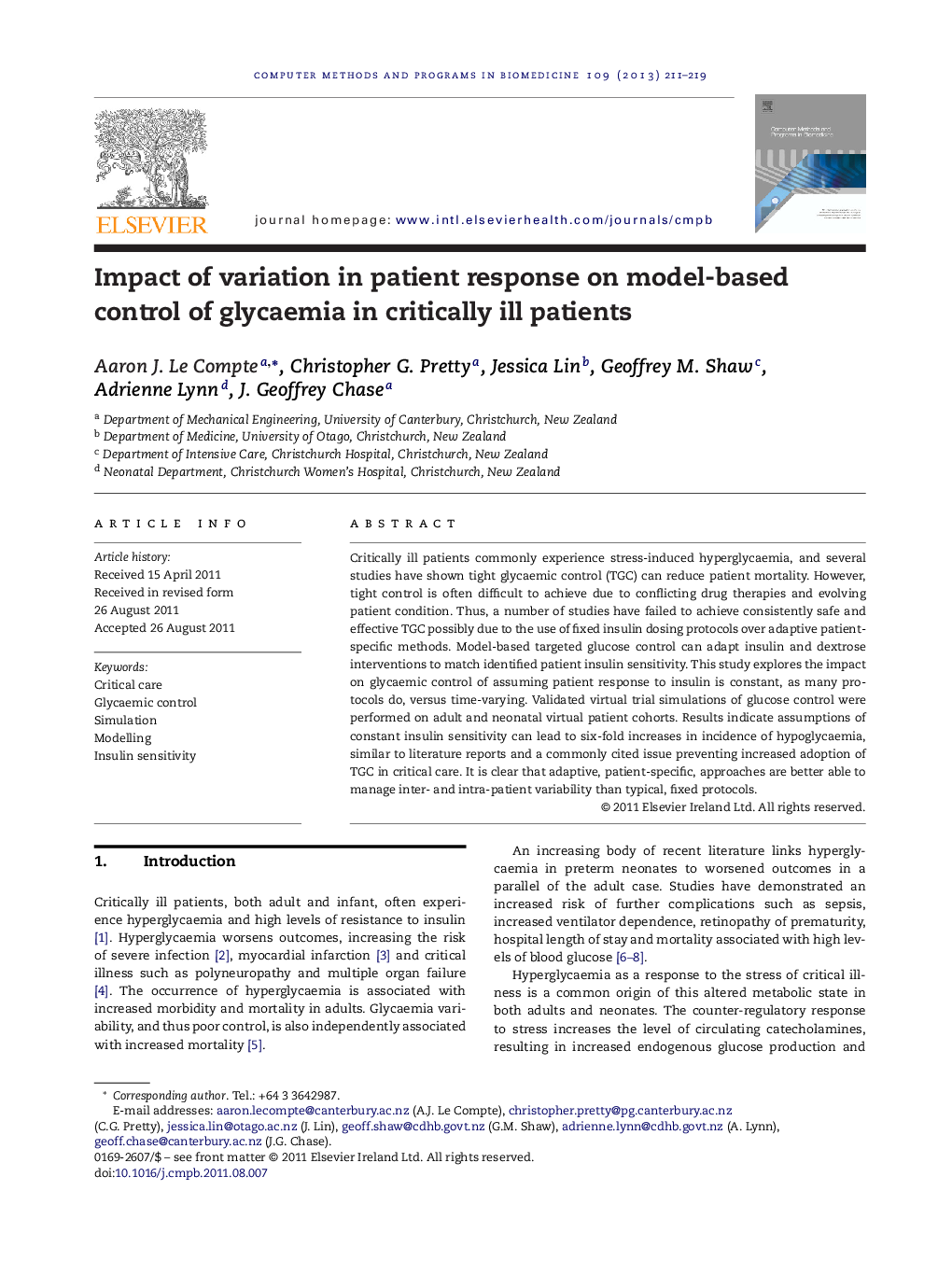| Article ID | Journal | Published Year | Pages | File Type |
|---|---|---|---|---|
| 10344995 | Computer Methods and Programs in Biomedicine | 2013 | 9 Pages |
Abstract
Critically ill patients commonly experience stress-induced hyperglycaemia, and several studies have shown tight glycaemic control (TGC) can reduce patient mortality. However, tight control is often difficult to achieve due to conflicting drug therapies and evolving patient condition. Thus, a number of studies have failed to achieve consistently safe and effective TGC possibly due to the use of fixed insulin dosing protocols over adaptive patient-specific methods. Model-based targeted glucose control can adapt insulin and dextrose interventions to match identified patient insulin sensitivity. This study explores the impact on glycaemic control of assuming patient response to insulin is constant, as many protocols do, versus time-varying. Validated virtual trial simulations of glucose control were performed on adult and neonatal virtual patient cohorts. Results indicate assumptions of constant insulin sensitivity can lead to six-fold increases in incidence of hypoglycaemia, similar to literature reports and a commonly cited issue preventing increased adoption of TGC in critical care. It is clear that adaptive, patient-specific, approaches are better able to manage inter- and intra-patient variability than typical, fixed protocols.
Related Topics
Physical Sciences and Engineering
Computer Science
Computer Science (General)
Authors
Aaron J. Le Compte, Christopher G. Pretty, Jessica Lin, Geoffrey M. Shaw, Adrienne Lynn, J. Geoffrey Chase,
